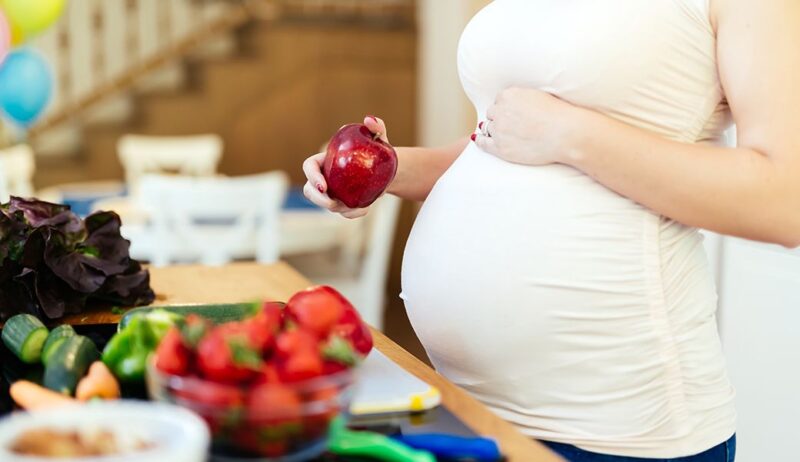The nutritional requirements of a pregnant woman differ from those of one who isn’t pregnant. Nevertheless, the underlying needs remain the same: lots of whole foods, plenty of liquids, limited consumption of processed foods and a good balance of protein and starch. But what else do you need to keep in mind to eat healthy during pregnancy? When you visit a maternity hospital, the doctor can give you specific dietary recommendations. Besides, here are some do’s and don’ts for a healthy pregnancy diet.
Do’s for a Pregnancy Diet
Incorporate 5 Vital Nutrients
Add Vitamin D, zinc, calcium, iron and folate to your diet. It’s good to consume the following daily:
- 600 international units (IU) of Vitamin D
- 15 milligrams of zinc
- 1,000 milligrams of calcium
- 27 milligrams of iron daily
- 400 micrograms of folic acid
Have More Fibre
Fibre is important for digestion and good health, especially during pregnancy when you may experience constipation and bloating. Foods abundant in fibre can also help you feel fuller for a longer span compared to refined carbs which generally lack fibre. Pregnant women must try to consume 25-35 milligrams of fibre daily.
Drink Plenty Of Fluids
During pregnancy, it’s a good idea to drink 8-10 glasses of water daily. More fluid intake will help support the development of the amniotic fluid, foetal circulation and a higher blood volume. It can also reduce the possibility of hemorrhoids, constipation, swelling, urinary tract infections and even chances of preterm labour and increases energy levels. You can drink water, milk, soup, smoothies and juices to get the necessary fluid intake. But try to avoid caffeine and sugary aerated drinks. If you have trouble restricting yourself, speak to the doctor at the maternity hospital about how much you can consume.
Get Your Omega-3s
Omega-3 fatty acids are crucial for the baby’s growth and a major source of nutrition for the pregnant body. A diet high in these fatty acids can improve your baby’s neurological functions and brain development before birth and can lead to better linguistic skills, memory and vision in the early childhood years. It can even boost mood and help lower the chances of postpartum depression in mothers. Fortified eggs, walnuts, flaxseeds and some varieties of fatty fish are great sources of omega-3s.
Don’ts for a Pregnancy Diet
Don’t Focus Too Much on “Eating For Two”
Remember that your little one requires nutrient-dense food instead of too much food. Weight gain depends on your pre-pregnancy weight and height. If you are pregnant with 1 baby, you usually need 340 additional calories daily in the 2nd trimester and 450 additional calories in the 3rd trimester.
Avoid Junk Food
During pregnancy, you may have strange food cravings, especially if you are deficient in a certain nutrient. However, that’s not an excuse to consume empty calories by eating junk. If you still crave any specific food, check in with your healthcare provider at the maternity hospital.
Don’t Drink Alcohol
Alcohol can harm your foetus and even cause birth defects. So, it’s best to avoid it altogether during pregnancy.
Keep the above suggestions in mind to have a proper pregnancy dietv and keep yourself and your baby in good health.
